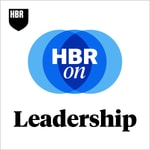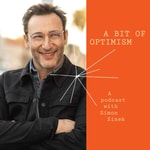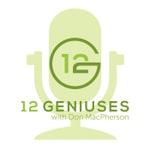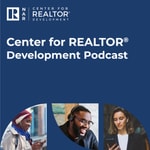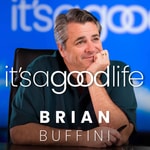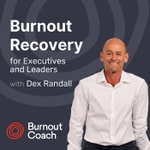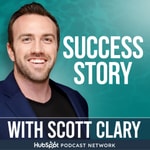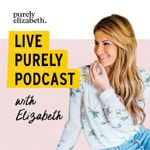Compassionate Accountability Podcast – Details, episodes & analysis
Podcast details
Technical and general information from the podcast's RSS feed.
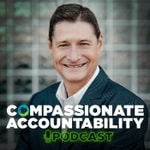
Compassionate Accountability Podcast
Nate Regier
Frequency: 1 episode/34d. Total Eps: 61

Recent rankings
Latest chart positions across Apple Podcasts and Spotify rankings.
Apple Podcasts
🇨🇦 Canada - management
31/07/2025#95🇨🇦 Canada - management
30/07/2025#55🇨🇦 Canada - management
19/06/2025#100🇨🇦 Canada - management
18/06/2025#58🇨🇦 Canada - management
08/06/2025#87🇨🇦 Canada - management
07/06/2025#46🇨🇦 Canada - management
06/06/2025#33🇨🇦 Canada - management
11/05/2025#79🇨🇦 Canada - management
10/05/2025#45🇨🇦 Canada - management
08/05/2025#81
Spotify
No recent rankings available
Shared links between episodes and podcasts
Links found in episode descriptions and other podcasts that share them.
See all- https://dougnoll.com
308 shares
- https://self-compassion.org/
244 shares
- https://seths.blog/
217 shares
RSS feed quality and score
Technical evaluation of the podcast's RSS feed quality and structure.
See allScore global : 42%
Publication history
Monthly episode publishing history over the past years.
Powerful Phrases for Dealing with Workplace Conflict with Karin Hurt and David Dye
mardi 1 octobre 2024 • Duration 34:53
Dr. Nathan Regier, your host, welcomes Karin Hurt and David Dye, the leaders and creators of Let’s Grow Leaders, where they support human-centered leaders to find clarity in uncertainty, drive innovation, and achieve breakthrough results. Karin and David share a common passion for helping leaders navigate conflict in more productive ways, believing that compassion and accountability can and should coexist for Organizations to thrive.
In today’s episode, Dr. Nate, Karin, and David discuss key findings from their cutting-edge research and explore practical frameworks for overcoming difficult conflict in all kinds of challenging situations.
Key Takeaways:
[3:22] Karin and David share the purpose behind their newest book, Powerful Phrases for Dealing with Workplace Conflict,
[4:45] Karin and David define conflict.
[6:03] What were the most significant findings Karin and David found in their research on conflict?
[8:11] David gives a brief overview of the four dimensions of Constructive Conflict described in their book: Connection, Clarity, Curiosity, and Commitment
[9:33] Is there any priority or order between these four dimensions of Constructive Criticism?
[12:23] What reassurances do Karin and David have for people not to avoid conflict?
[14:44] Karin and David discuss people's common struggle to say ‘No’ and set healthy boundaries.
[17:43] Karin and David share the most significant practices included in their book.
[19:41] What does success look like?
[22:23] Karin and David highlight the best contributions they got for the writing of their book.
[24:46] How can we practice co-creation collaboration during conflict?
[26:22] You need to talk before conflict about how you plan to handle conflict when it happens.
[27:39] Leaders often misinterpret conflict as being authentic.
[29:10] If your authenticity creates discomfort for your Team, you are not communicating effectively as a leader.
[30:02] Has this book changed the way Karin and David communicate with each other?
Mentioned in this episode:
Compassionate Accountability: How Leaders Build Connection and Get Results, Nate Regier
Visit Next-Element
Powerful Phrases for Dealing with Workplace Conflict, Karin Hurt and David Dye
Tweetables:
“There is a whole different complexity of conflicts after the pandemic.” #oncompassion
“Connection and understanding makes everything easier.” #oncompassion
“The more you can get clarity upfront, the fewer expectation violations you will have.” #oncompassion
“No matter the conflict, there are always ways to connect.” #oncompassion
“Over 70% of people are willing to compromise to avoid conflict.” #oncompassion
“If your authenticity creates discomfort for your Team, you are not communicating effectively as a leader.” #oncompassion
Real Presence as the Key to Compassionate Leadership with Parker J. Palmer
dimanche 1 septembre 2024 • Duration 35:44
Dr. Nathan Regier, your host, welcomes Parker J. Palmer. He is a legendary writer, traveler, teacher, and activist who has dedicated his life to understanding and promoting an authentic and practical kind of compassion: his magnificent paper, The Gift of Presence. The Perils of Advice highlights the common mistake of trying to help people when they often only need our presence.
In today’s conversation, Parker shares his views about our culture and democracy, how leaders can avoid burnout, and a simple practice for building resilient communities at the beginning of every staff meeting.
About Parker J. Palmer:
Parker J. Palmer is the founder and Senior Partner Emeritus at the Center for Courage and Renewal. He holds a Ph.D. in sociology from the University of California at Berkeley, thirteen honorary doctorates, two Distinguished Achievement Awards from the National Educational Press Association, and an Award of Excellence from the Associated Church Press.
Palmer is the author of ten books, including several award-winning titles, that have sold nearly two million copies and been translated into ten languages.
Key Takeaways:
[3:29] Parker talks about the purpose and mission of the Center of Courage and Renewal.
[6:02] Parker describes what he calls his ‘red thread’.
[9:25] Parker discusses the role of conflict in compassionate accountability.
[12:52] What is happening with conflict in our society?
[15:43] What kind of internal work do humans need to do to see abundance in relationships rather than scarcity?
[18:41] Parker shares the five habits of the heart for democracy to function.
[24:49] Parker talks about leadership and presence in the context of burnout.
[29:33] Parker shares his advice to leaders.
[31:59] What is life trying to teach Parker now?
Mentioned in this episode:
Compassionate Accountability: How Leaders Build Connection and Get Results, Nate Regier
Visit Next-Element
The Gift of Presence. The Perils of Advice, Parker J. Palmer.
POETRY + PROSE + POLITICS: Pro-democracy, Pro-civil discourse, Pro-decency
Tweetables:
“Our Education system educates people largely on external realities, and they are rarely taught on their inner journeys, their psyches, and souls.” — Parker Palmer #oncompassion
“If you choose to live an unexamined life, please do not take a job that involves working with other people.” — Parker Palmer #oncompassion
“Conflict demands that we let go of internal narcissism to understand others deeper.” — Parker Palmer #oncompassion
“By working together, we create abundance.” — Parker Palmer #oncompassion
“The more you know about someone’s story, the less possible it is to despise or dismiss them, which builds compassion and can be done in the workplace.” — Parker Palmer #oncompassion
“Knowing the ground in which you are standing is called presence.”— Parker Palmer #oncompassion
How to Impact BIG SCALE Change with Dov Baron
Episode 47
vendredi 1 décembre 2023 • Duration 36:16
Dr. Nathan Regier, your host, welcomes you to another episode of On Compassion — this time to discuss deep psychology, human behavior, and how to impact big-scale change. Dr. Nate is joined by Dov Baron, the founder and CEO of Dov Baron International. Dov is a preeminent expert in helping leaders create life and work meaning, his models and strategies of the emotional source code and the anatomy of meaning are used by leaders in business and government worldwide.
What's In This Episode
- What inspired Dov at age 14 to get out of the ghetto in the UK where he was born?
- What is the Anatomy of Meaning?
- What is the emotional Source Code?
- What are the five levels of Emotional Source Code that predict lasting behavior change?
- How do we explain the behavior of current political leaders, suicide bombers or Neo Nazis?
- Why are we so lonely?
- The power of belonging, and the impact on productivity.
- How do we create cultures of belonging?
- What is Dov’s religion? Why does it matter?
- What you can do to encourage belonging.
Key Takeaways:
[4:14] Dov shares some experiences from his past that formed who he is today.
[8:55] What is the nature of Dov’s business?
[12:07} What is the anatomy of meaning?
[14:32] We have a responsibility at a personal level to know our anatomy of meaning (which doesn’t mean it is the truth, but it is still yours).
[15:43] Dov explains what he calls algorithms of rage.
[17:22] Dov defines the emotional source code.
[24:03] How do we reconcile the human side of relationships with the increasing push toward productivity and results?
[28:10] Dov gives a critical suggestion for those wanting to apply his concepts: Embrace curiosity.
[34:10] Dr. Nate shares the top three takeaways from a fabulous conversation with Dov Baron.
Mentioned in this episode:
Compassionate Accountability: How Leaders Build Connection and Get Results, Nate Regier
Visit Next-Element
Learn more about Dov Baron
Listen to Leadership and Loyalty Podcast and Curiosity Bites Podcast.
Tweetables:
“Trauma can become a driving force for what is good and what is not so good, and without awareness, it won’t go well.” #oncompassion
“Purpose is not the way; it is the why of the why, which drives us unconsciously.” #oncompassion
“Now, more than ever, in this epidemic of loneliness, people want community.” #oncompassion
“Those who control the meaning of the tribe control the movement of the tribe.” #oncompassion
How Work Cultures Heal from Trauma
Episode 46
dimanche 1 octobre 2023 • Duration 32:42
Dr. Nathan, your host, welcomes Rex Miller to discuss how organizational cultures and communities are impacted and rebuilt after the trauma of rapid change we suffered due to the COVID-19 pandemic. Rex is a renowned expert in optimizing human and team performance, strategic foresight, and organizational transformation. With over 20 years as a consultant and coach, he has authored six Wiley books and received numerous accolades, including the CoreNet Global Innovator Award, the Industry Excellence Award, and IFMA's Distinguished Author Award.
What's In This Episode
- What are the three kinds of trauma?
- How does trauma show up in our brains and bodies
- What has happened to empathy over the past 50 years
- How can storytelling help people heal from trauma?
- What did most companies miss in their response to Covid?
Key Takeaways:
[3:51] How did Rex get interested in workplace culture?
[5:15] Rex shares his work dealing with trauma in communities and helping people recover from it.
[11:02] Rex defines trauma.
[14:00] Rex shares what he calls the “evolution of empathy.”
[15:48] Dr. Nate discusses the difference between empathy and compassion fatigue.
[16:47] Rex talks about his current work with organizational cultures.
[20:29] Rex discusses the power of creating safe entry-level conversations.
[22:14] Dr. Nate emphasized the importance of helping people reengage with the narrative to preserve their dignity and agency and help them take ownership of it, moving to a more empowered vision of themselves.
[22:52] Rex explains why he believes we are in a collective vertigo.
[25:51] Rex talks about his new passion: River Rose Ranch.
[27:02] What is Rex excited about at the moment?
[30:05] Dr. Nate shares his top three takeaways from an insightful conversation with Rex Miller.
Mentioned in this episode:
Compassionate Accountability: How Leaders Build Connection and Get Results, Nate Regier
Visit Next-Element
Learn more about Rex Miller
Follow Rex Miller on Linkedin
Tweetables:
“Compassion is the entryway to help people heal.” #oncompassion
“People are craving safety and connection at work.” #oncompassion
“We heal in the community; we need to rehumanize one another.” #oncompassion
Leadership Is An Activity, Not A Position, with Ed O’Malley and Julia Fabris McBride
Episode 45
vendredi 1 septembre 2023 • Duration 39:26
Dr. Nathan Regier, your host, welcomes Ed O’Malley, the founding president and CEO of the illustrious Kansas Leadership Center, an organization committed to fostering leadership for stronger, healthier, and more prosperous communities, and Julia Fabris McBride, Chief Civic Leadership Development Officer of the KLC.
Ed and Julia embody a Compassion Mindset with their deep caring for people, curiosity, and commitment to excellence. In this episode, they join Dr. Nate to discuss their newest book, When Everyone Leads: How the Toughest Challenges Get Seen and Solved, and the principles of this groundbreaking work.
Key Takeaways:
[5:52] Julia and Ed share how they built KLC.
[7:37] How does When Everyone Leads fit into Ed and Julia’s careers?
[10:35] Ed explains how they structured this book.
[13:07] Julia discusses the journey and experiences that led them to write When Everyone Leads.
[15:57] What are the two biggest problems that leaders should and can be ready to solve with this book?
[17:50] Ed and Julia describe the difference between adaptive and technical challenges.
[21:20] Julia highlights the importance of partnering with Dr. Nate since a compassionate mindset is needed in every leadership role to tackle adaptive challenges.
[23:04] Julia and Ed discuss their view on conflict and how we should use it.
[25:50] What is their favorite chapter of When Everyone Leads?
[29:22] Leaders should get vulnerable, ask for help, and be clear about what matters most to their people.
[29:54] What gives Ed and Julia the most hope?
[34:01] What has given Julia and Ed joy and enthusiasm lately?
[36:53] Dr. Nate shares his top three takeaways from a lively conversation with Ed and Julia.
Mentioned in this episode:
Learn more about Ed O’Malley and Julia Fabris McBride.
Tweetables:
“Leadership is an activity.” #oncompassion
“One of the biggest challenges in leadership is not to treat adaptive challenges as if they are technical.” #oncompassion
“Conflict is an opportunity, and it is energy.” #oncompassion
“Conflict is inherent in progress, which is beautiful!.” #oncompassion
“Part of exercising leadership is letting go and how to take care of yourself to be able to care for the ones you care most about.” #oncompassion
Designing Neurodiverse-Friendly Workplaces with Kay Sargent
Episode 44
mardi 1 août 2023 • Duration 34:16
Dr. Nathan Regier, your host, welcomes Kay Sargent to today’s episode. Kay is the senior principal and director of the Workplace Team and is on the board of directors of HOK, a global design architecture engineering and planning firm employing 16,000 people.
Kay is making an impact for neuro-diverse individuals in the workplace; she has nearly 40 years of experience and is an award-winning, recognized expert on workplace design and strategy issues. She believes we have a moral and ethical obligation to use our skills for a meaningful and positive impact.
Key Takeaways:
[3:35] Kay shares her professional interest in neurodiverse-friendly design.
[5:03] Kay defines neurodiversity.
[6:49] What are some of the challenges that neurodivergent people face in the workplace?
[8:42] What is Kay currently doing with her clients? Kay is giving them options, choices, and control.
[12:09] Is there a business benefit from this type of inclusive design?
[18:09] Kay describes the built environment's impact on people by listing three naib aspects.
[20:07] What is the flaw in only considering location and flexibility as the main workplace factors?
[22:14] Kay shares some of her current projects.
[26:18] What would Kay advise an influential leader? Give people options!
[32:03] Dr. Nate shares his top three takeaways from an empowering conversation with Kay Sargent.
Mentioned in this episode:
Compassionate Accountability, How Leaders Build Connections and Get Results, Nate Regier
Visit HOK.com
Tweetables:
“Building and designing environments at the service of people with different sensory profiles” #oncompassion
“Every decision that a designer makes about color and textures impacts individuals with different sensory profiles.”
“Since COVID, everyone has a higher sensitivity to their surroundings.”
“When you design for the extremes, you benefit the mean; when you design for the average, you benefit no one.”
“No single business won't benefit from people being happier, healthier, more engaged, more empowered and productive.”
“We have the moral and ethical obligation to really create spaces that are empowering for individuals and inclusive for all.”
Compassion is a Core Competency in Healthcare with Elizabeth Bruno
jeudi 1 juin 2023 • Duration 37:27
Dr. Nathan Regier, your host, welcomes Elizabeth ‘Liz’ Bruno to today’s episode. Liz, Vice President and Chief Learning Officer at Baptist Health in Jacksonville, Florida, oversees an impressive six-hospital system with a staggering 14,000 employees.
She's a force to be reckoned with—a true rebel at heart and a shining example of compassion in the healthcare field.
When it comes to understanding the profound meaning of real compassion in the world of healthcare, Liz gets it.
Key Takeaways:
[3:27] Liz shares how she became a nurse.
[4:40] Liz explains why she likes to be called a ‘Learning and Developing Goddess’.
[5:14] Liz talks about her role at Baptist Health.
[7:20] Liz defines compassion as a competency.
[8:35] There can be compassion without empathy.
[11:50] Compassion helps everyone involved feel better.
[12:50] Dr. Nate shares one of the greatest barriers to practicing compassion.
[13:29] How does Liz teach people to behave compassionately in the business of healing?
[16:24] How do we deal with burnout and honor our identities in the process?
[20:02] It’s ok to be vulnerable.
[21:00] How does Liz convince people that being vulnerable is the key to more energy and better care?
[23:18] Remembering the times when someone took care of you is a great tool to deal with burnout.
[26:10] Liz discusses the issue of shortages in healthcare.
[29:04] Liz talks about the training she is giving on how to be compassionate virtually.
[31:55] What is Liz looking forward to in the next few years?
[35:26] Dr. Nate shares the highlights of an amazing conversation with Elizabeth Bruno.
Mentioned in this episode:
Follow Elizabeth ‘Liz’ Bruno on Linkedin
Baptist Health in Jacksonville, Florida
Tweetables:
“Compassion makes everything better” #oncompassion
“Compassion improves outcomes and satisfaction.” #oncompassion
“Compassion is a learnable and a teachable skill.” #oncompassion
How Physical Spaces Build Connection and Get Results with Doug Shapiro
Episode 42
lundi 1 mai 2023 • Duration 35:30
Dr. Nathan Regier, your host, welcomes Doug Shapiro, who is the vice president for research and insights at OFS, a family-owned contract furniture manufacturer with a unique mission to bring people together. Doug specializes in imagining physical spaces that promote connection and wellness. He believes that design is compassion manifested in the physical space.
Doug is from an industry people won’t naturally associate with compassion, accountability, and Leadership: The commercial Furniture industry, but we all know that thriving cultures are about their people, and those people live, work, and interact within a physical space that has a massive influence on them. Listen to this episode to learn how space and place affect can be an instrument of compassionate accountability.
Key Takeaways:
[2:28] What is the connection between furniture manufacturing and compassion?
[3:15] Doug talks about his work and mission.
[5:25] What makes OFS so unique?
[7:10] What kind of problems does Doug solve? Who does he work with?
[9:39] Doug shares an example of his work.
[11:25] Doug talks about his experience with specific clients.
[12:37] What does not work? What goes against the notion of including people, working together, and helping them to be productive?
[17:16] Doug explains why some spaces work better than others to foster belonging and inclusion.
[18:39] Are there any fundamental principles of design that inspired the work that Doug does?
[20:16] Dr. Nate shares the definition of compassion.
[21:19] How can our physical space support the fact that we are valuable, capable, and responsible?
[24:10] A space can send messages about what is essential and what is not.
[24:24} Doug has published a children’s book and is about to launch another.
[26:48] Doug talks about Imagine a Place, his Podcast.
[27:48] Doug shares resources with the audience
[29:33] Doug shares a fun conclusion he found recently.
[31:52] Dr. Nate shares his top three takeaways from a fun conversation with Dough Shapiro.
Mentioned in this episode:
Drive: The Surprising Truth About What Motivates Us, Daniel Pink
Design Your World, Doug Shapiro
Tweetables:
“Show people how much you care about them.” #oncompassion
“Design and compassion are very closely connected. Compassion is taking action on empathy, and design is compassion that has been manifested after listening and understanding who will inhabit a particular space.“ #oncompassion
“Compassion has to be demonstrated, we can’t just talk about it.” #oncompassion
Mindful Self-Compassion with Dr. Kristin Neff
Episode 41
samedi 1 avril 2023 • Duration 38:34
Dr. Nathan Regier, your host, welcomes Dr. Kristin Neff to today’s episode.
Dr. Neff is a researcher, an author, and a business owner she's been recognized as one of the world's most influential research psychologists. Dr. Neff is a pioneer in the study of self-compassion, she was the first one to define and measure the construct almost twenty years ago operationally. Dr. Neff received her doctorate from the University of California at Berkley and is currently an associate professor of Educational Psychology at UT Austin. In addition to writing numerous academic articles and chapters on the topic, she is the author of the book Self-compassion: The Proven Power to Being Kind to Yourself and Fierce Self-Compassion: How Women Can Harness Kindness to Speak Up, Claim Their Power and Thrive. In conjunction with her colleague Dr. Chris Germer, she has developed an empirically supported training program called Mindful Self-Compassion which is taught by thousands of teachers worldwide. She's also co-founder of the non-profit Center for Mindful Self-Compassion. Dr. Neff is bringing compassion to the workplace in so many different ways!
In this Episode:
- How Kristin got interested in studying self-compassion.
- How is self-compassion different from other kinds of compassion?
- What are the three components of self-compassion?
- How self-compassion increases responsibility, agency and resilience.
- What’s the difference between fierce and tender self-compassion?
- Why is self-compassion more stable than self-efficacy or self-esteem?
- What are the workplace benefits of self-compassion?
Key Takeaways:
[2:18] How did Dr. Neff get interested in the field of self-compassion?
[3:46] Dr. Neff distinguishes self-compassion from other forms of compassion.
[4:11] Dr. Neff shares her three-component model for compassion.
[5:44] Dr. Nate and Dr. Neff talk about the origins of the word compassion: Suffering with others.
[8:50] Do we suffer alone? That thought is scary and isolating.
[9:36] Dr. Neff discusses the number one blockage for self-compassion.
[10:21] Self-compassion is a more effective motivator than self-criticism.
[12:44] Compassion and accountability cannot live without each other.
[13:04] Tender vs. fierce self-compassion.
[15:00] Dr. Neff uses the analogy of being a good and compassionate parent.
[16:17] Dr. Neff addresses the fact that some help is well-intended but ineffective (not alleviating suffering).
[18:03] Self-efficacy, self-esteem, and self-compassion provide a sense of value and worth.
[21:43]. Dr. Neff talks about her new book Fierce Self Compassion.
[24:55] What role does self-compassion play in business?
[27:07] How does conflict fit in the practice of self-compassion?
[29:20] There is a lot of energy in conflict that we are misusing.
[31:55] Dr. Neff advises people on how to start addressing self-compassion.
[34:25] Self-compassion is also a spiritual practice.
[35:40] Dr. Nate shares the top three takeaways from an insightful conversation with Dr. Neff.
Mentioned in this episode:
Check Dr. Neff’s website
Tweetables:
“You can be intentionally kind and supportive to yourself.” #oncompassion
“The number one block for self-compassion is people thinking that they have to be tougher and harder with themselves, and giving themselves a break seems like lowering their standards .” #oncompassion
“Self-compassion is a more effective motivator than self-criticism.” #oncompassion
“It is not compassionate to let people off the hook.” #oncompassion
“Self-compassion reduces burnout and increases work-life balance.” #oncompassion
I'm Here: Compassion in Patient Care with Marcus Engel
Episode 40
mercredi 1 mars 2023 • Duration 38:07
Dr. Nathan Regier, your host, is joined by Marcus Engel in today’s episode.
Marcus M.S., CPXP, CSP, is a Certified Speaking Professional and author whose messages provide insight and strategies for excellent patient care. His keynote presentation, The Other End of the Stethoscope, has been witnessed by tens of thousands of healthcare professionals. His books are used in scores of nursing and allied health programs to teach the basic foundations of caregiving.
Marcus shares in this episode how compassion helped to transform pointless agonizing pain and suffering into an amazing journey of recovery and purpose; his story illustrates the transformative power of compassion.
What's In This Episode:
- What happened to Marcus, how it changed his life forever, and how he has used that experience to serve others.
- The two most important words you can say to another human being who is suffering.
- How do you “be here” with others in today’s busy and distracting world?
- The three most compassionate things you can say to another person.
- In light of limited resources, how can leaders create more compassionate systems and cultures?
Key Takeaways:
[3:40] What is Marcus’ story? Marcus shares his story of survival and healing.
[9:10] “I am here” Marcus talks about the importance of your presence as the greatest gift you can ever give.
[11:42] Marcus shares some key lessons he learned from his near-death experience that he now teaches others.
[13:43] “Hurting people hurt people” Marcus explains how he dealt with the guilt of knowing he hurt others during his recovery (mostly he was hurt).
[15:08] Suffering is an inevitable part of the human experience.
[16:17] Science backs up compassion.
[17:37] Marcus shares some tools for people to be present: I am here, Me too, I got you.
[19:39] Marcus summarizes the scientific research that backs up compassion.
[21:48] Dr. Nate discusses the three switches in a compassion relationship.
[22:30] Marcus believes that the fact that he was deeply hurt proposes he tries to prevent this from happening to others.
[24:00] Burnout can also look like compassion fatigue.
[26:57] What does the Healthcare administration can do right away to improve the patient experience?
[28:32] Everybody wants compassionate leadership.
[28:58] Marcus shares a particular interaction that had a huge effect on him.
[32:16] Are there any barriers that people face inside them that prevent them from being present for others?
[36:00] Dr. Nate shares the highlights of an amazing conversation with Marcus Engel.
Mentioned in this episode:
The Other End Of The Stethoscope - 33 Insights for Excellent Patient Care, Marcus Engel
Compassion & Courage: Conversations in Healthcare Podcast
Learn more about Marcus Engel
Tweetables:
“Our presence is the greatest gift we can give to another human being.” #oncompassion
“Hurting, pain, and suffering are part of the human experience.” #oncompassion
“Non-judgemental awareness is another way to define compassion.” #oncompassion

